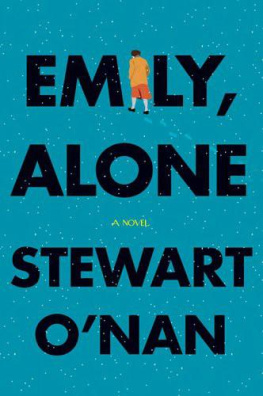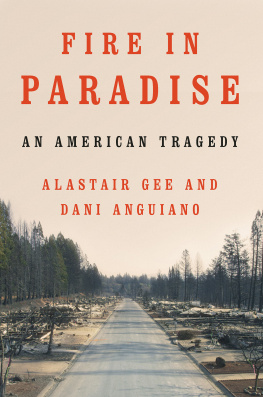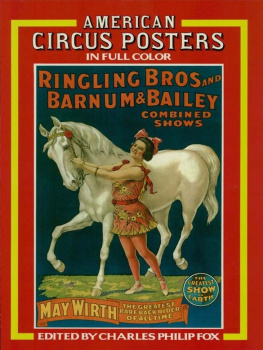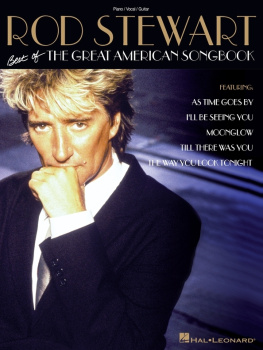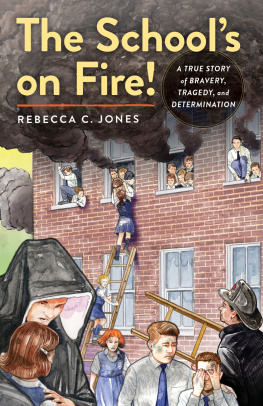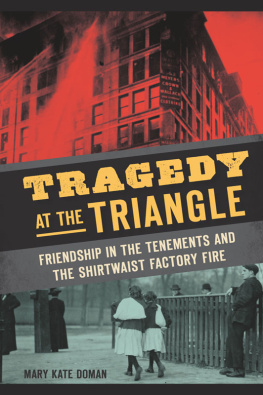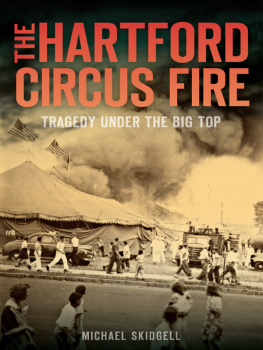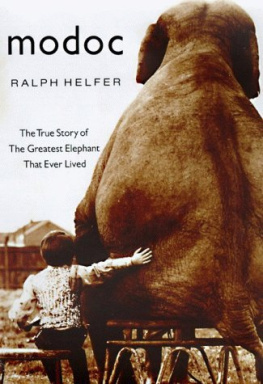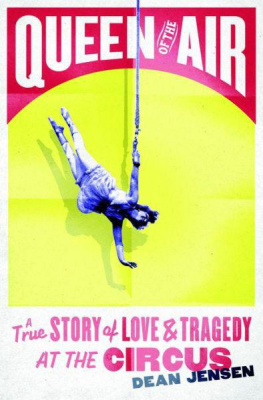Stewart ONan - The Circus Fire: A True Story of an American Tragedy
Here you can read online Stewart ONan - The Circus Fire: A True Story of an American Tragedy full text of the book (entire story) in english for free. Download pdf and epub, get meaning, cover and reviews about this ebook. year: 2008, publisher: Anchor Books, genre: Detective and thriller. Description of the work, (preface) as well as reviews are available. Best literature library LitArk.com created for fans of good reading and offers a wide selection of genres:
Romance novel
Science fiction
Adventure
Detective
Science
History
Home and family
Prose
Art
Politics
Computer
Non-fiction
Religion
Business
Children
Humor
Choose a favorite category and find really read worthwhile books. Enjoy immersion in the world of imagination, feel the emotions of the characters or learn something new for yourself, make an fascinating discovery.

- Book:The Circus Fire: A True Story of an American Tragedy
- Author:
- Publisher:Anchor Books
- Genre:
- Year:2008
- Rating:5 / 5
- Favourites:Add to favourites
- Your mark:
- 100
- 1
- 2
- 3
- 4
- 5
The Circus Fire: A True Story of an American Tragedy: summary, description and annotation
We offer to read an annotation, description, summary or preface (depends on what the author of the book "The Circus Fire: A True Story of an American Tragedy" wrote himself). If you haven't found the necessary information about the book — write in the comments, we will try to find it.
The Circus Fire: A True Story of an American Tragedy — read online for free the complete book (whole text) full work
Below is the text of the book, divided by pages. System saving the place of the last page read, allows you to conveniently read the book "The Circus Fire: A True Story of an American Tragedy" online for free, without having to search again every time where you left off. Put a bookmark, and you can go to the page where you finished reading at any time.
Font size:
Interval:
Bookmark:
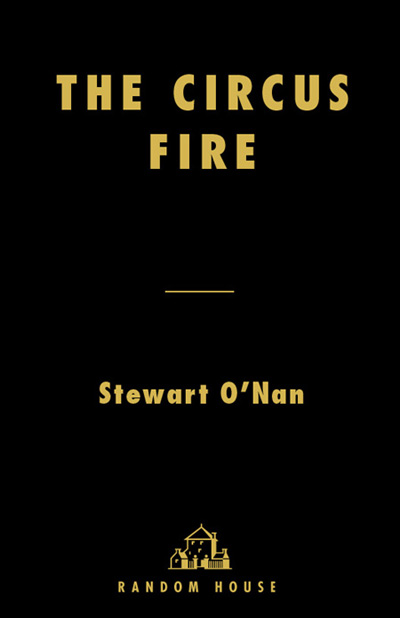
The Circus Fire
The Circus Fire is terrifying, compelling, and absolutely read ablebecause it is real. It happened in 1944, but Stewart O'Nan brings it to life again, along with its heroes and villains, and makes you feel like you're inside the big top as it starts to burn.
Rick Bragg
A fitting and poignant memorial to the victims. To his credit, O'Nan sticks with the facts and by doing so enables the story to tell itself.
Chicago Tribune
Taut and loving, this book strains to the heart's outer limits. The Circus Fire is journalism in the service of literature, literature in the service of history.
Rick Bass
Mr. O'Nan's research has been prodigious, and his presentation of his findings is expert.
The Atlantic Monthly
Like Jon Krakauer's Into Thin Air, The Circus Fire does more than just re-create and explain disaster. It examines its human cost.
Minneapolis Star Tribune
A superbly written and absorbing book, admirably documented. This is a candid picture of humans at their best and their worst, and deserves a place on the shelves of any serious student of the American circus.
Jim Foster, editor, The White Tops, official publication of the Circus Fans Association of America
O'Nan endows The Circus Fire with a haunting literary sense of time and place, enhancing the nonfiction genre within which he works.
Austin American-Statesman
The real gut punch of the book is delivered by some very per sonal stories. For all the sadness, however, this book is a sat isfying read that sidesteps sensationalism. It includes stories of unsung heroes, those who reacted to disaster with strength and courage, and those who used the situation as a starting point for change.
The Denver Post
A remarkable piece of reporting. [O'Nan] shows an earnest dedication to giving the story what it deserves: a solemn, care ful telling.
The Hartford Courant
[O'Nan's] thoroughness takes in a myriad of often conflicting perspectives until he creates a mosaic that includes the pica yune and the epic [an] unflinching account tense and grisly.
San Francisco Chronicle
It seems strange that one of the most devastating tragedies in American history had, until recently, not received in-depth coverage outside of newspapers. Stewart O'Nan's excellent book has provided that coverage in a definitive yet easy-to-read style. It is as fast-moving as a novel, yet it left very few ques tions unanswered.
The Little Circus Wagon
One of the best examples of nonfiction narrative writing I've ever encountered. The Circus Fire sets the bar many notches higher for all who would aspire to write such nonfiction novels.
David Dawson, The Commercial Appeal
Spectacular. The effect of this book is like that of Sebastian Junger's The Perfect Storm. In focusing on what psychologists say are predictable human responses to sudden danger, O'Nan makes us all wonder what would have happened to us if we'd been at the circus that day.
The Arizona Republic
A compelling story. Those who read it won't soon for get it.
The Dallas Morning News
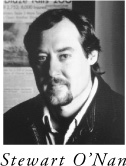
Stewart O'Nan is the author of five critically acclaimed novelsSnow Angels, The Names of the Dead, The Speed Queen, A World Away, and A Prayer for the Dyingand served as the editor for The Vietnam Reader. He lives in Avon, Connecticut.
Also by Stewart O'Nan
A Prayer for the Dying
A World Away
The Speed Queen
The Names of the Dead
Snow Angels
In the Walled City
Editor
The Vietnam Reader
On Writers and Writing, by John Gardner
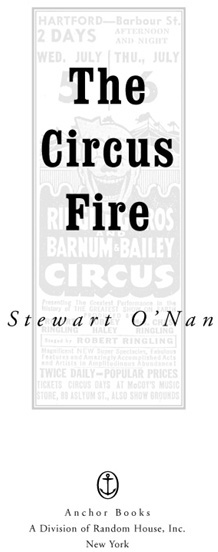
This book is for everyone who went to the circus that day
those who came home
and those who stayed.
I did not want to write this book. Why I attempted it I'm not precisely sure. Certainly not because I had some personal connection to the circus fire or because I had something deep and meaningful to say about it. I suppose it was because I found the fire a strange and tragic event, one that had taken place in the city I had just moved to. In the beginning, writing about the fire was a way, maybe, of learning not only about the mysteries surrounding the fire but also the history that shaped the place I live.
I first ran across a mention of the fire ten years ago in an old Life magazine while I was doing research for a novel. The notion of a circus tent burning down and children dying inside it shocked me, as did the pictures accompanying the article.
I must have filed the idea and the images away in my head, as I often do with unsettling things, because years later when we moved to Hartford, I recalled the fire and its effect on me. I decided I should read more about it, so I went to the library and asked for a good history of it.
They didn't have one.
Maybe another library around town?
No, what they meant was, there wasn't one.
I thought that was wrong. The circus fire was the biggest disaster in the history of the state, and such a strange one. So many people had died, I couldn't believe no one had commemorated the event, set it in words for later generations.
I didn't want to write a book about the fire, I just wanted to know what happened. I started asking people around town what they knew about it.
Everyone had a friend or neighbor who had been there that day, a grandmother or a cousin. Everyone had a story. People of that generation knew exactly where they were that afternoon, just as, later, they could recall what they were doing when President Kennedy was shot. The fire had that great of an impact on the city.
By then I'd begun to do research, thinkingnot realisticallythat maybe I could interest someone who knew how to write nonfiction in taking on the project. I'd gather the material and hand it off to a professional and in a year or two I'd have that book I wanted to read.
Soon I had several notebooks full of photocopied documents, and the novel I thought would take me into the next century was finished. Suddenly I had the time and obviously the interest. I was stuck.
By choosing to write the book, I would assume the obligation of telling hundreds of survivors' stories. I would becomein a way I did not feel comfortable withthe custodian of the circus fire, implicitly charged with not only telling its story but also, in the method of telling it, in my choices as a writer, interpreting the fire, imbuing it with whatever meaning I felt it had. I did not want that responsibility, but at that point what I wanted no longer mattered. The fire had me, and I had it.
When I first told people not from Hartford that I planned to write a nonfiction history of the fire, they asked me why I didn't just write a novel. The question surprised me; I'd never thought of writing a novel about it. From the beginning, because of its vague, legendary nature, I felt it deserved only the most stringent, very best intentions of nonfiction, the idea being to tell the truth about an event that changed the lives of tens of thousands of people. I suppose I thought I might cheapen the fire by fictionalizing it.
Font size:
Interval:
Bookmark:
Similar books «The Circus Fire: A True Story of an American Tragedy»
Look at similar books to The Circus Fire: A True Story of an American Tragedy. We have selected literature similar in name and meaning in the hope of providing readers with more options to find new, interesting, not yet read works.
Discussion, reviews of the book The Circus Fire: A True Story of an American Tragedy and just readers' own opinions. Leave your comments, write what you think about the work, its meaning or the main characters. Specify what exactly you liked and what you didn't like, and why you think so.

